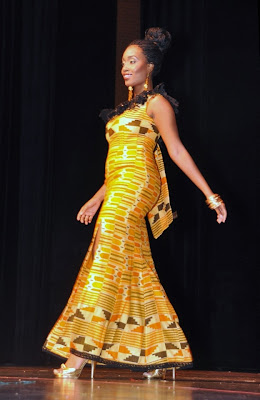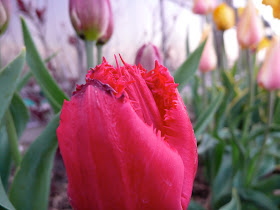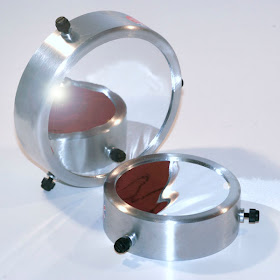After dabbling in point-and-shoot photography for so long, a time comes when one ought to make that plunge into
dSLR cameras. Point and shoot cameras are popular for their compact sizes and ease of use. Recently they have made strides in resolution, optical zoom and cool filters that can salvage some terrible pictures from the trash.
But for the Photography enthusiast that wants that extra control in creativity, graduating to a dSLR camera is the natural progression that will unleash the artistic expression of stories with pictures.
Frankly these dSLR cameras are bulky, unsightly, heavy and expensive so really you need to have a strong stomach to want one. Were it not for my love of Photography and this whole business about blogging I wont give a dSLR camera a second look. Not to mention the typecasting folks who carry cumbersome cameras on tripods experience.
I am sure photographers are good people and they too have friends besides other photographers and they can talk about stuff other than shutter speed. But on the real, I have gathered a wealth of information this past year talking to professional Photographers and reading up on the best choice of dSLR camera for a novice just breaking into photography.
The general consensus is a two-man horse race between Canon and Nikon. These days the major players in the camera industry all market three offerings namely amateur, semi-professional and professional dSLR cameras.
The amateur dSLR's are the introductory cameras that offer a lot of creative flexibility at very consumer-friendly pricing. Anything from between $400 and $800 will get you amateur cameras like the Canon Digital Rebel T1i, T2i,T3i or Nikon D3100, D5100 or still yet Sony Alpha A390 and A33.
The intermediate level cameras are under a couple thousand dollars that offer more control, better weather proofing than the entry level cousins, and examples include the Canon EOS 60D, Nikon D7000, D300's and Sony Alpha A77.
At the professional level you get a full range of versatility, rugged construction and a host of fine features that will tax your technical competence even as you compose those professional looking pictures. We are talking costs that require a small mortgage to foot, in excess of Three grand. Choices at this level include Canon EOS 5D Mark 11, 111, EOS 1D Mark IV, EOS 1Ds Mark 111, Nikon D700, D800, D3s and Sony alpha A900.
After looking long and hard at the clearly very congested field of dSLR cameras, the recently selling Canon EOS 5D Mark 111 and the Nikon d800 appeal to me the most of all the options out there and so far I have devoted many man-hours digging into reviews and specifications and sample photos to help me decide which of these two good dSLR cameras will make my summer wish list.
I am hoping to get some more input from photographers, camera enthusiasts and fine photography critics out there which will help shape my decision.
So here is where I stand right now on a head to head between the Canon and Nikon, all information here is my perception of the facts obtained second-hand from my research of the two cameras...
The Look and Feel:
 |
| credit cnet asia |
Both contestants look sharp, the Nikon a little taller and the Canon wider. I like the red stripe on the Nikon, provides nice contrast on an otherwise boring plain black body. They are both of Magnesium alloy robust weather-sealed construction. The Canon features a deeper rounded handgrip while the Nikon has a boxier handgrip. The Nikon has a built-in flash, the Canon doesn't come with a flash. The Nikon is also a little lighter in weight.
Advantage Nikon D800.
Resolution:
The Canon has a 22 megapixel sensor and the Nikon has a 36 megapixel sensor, a difference substantial enough to cause pixel envy in the Canon camp.
Advantage Nikon D800.
Video:
Both cameras offer 1080p full HD video recording. The difference though nuanced, the Canon captures more vibrant and warmer videos compared to the Nikon's more neutral colours.
Advantage Canon EOS 5D Mark 111.
Low-Light Performance:
Some reviewers who compared side by side photos at identical conditions and camera settings claim Canon superiority here. But critics contend that because the Nikon is sampling at a 40% higher megapixel density than the Canon, that it is not a fair comparison unless you down-sample the Nikon photos to a 22 megapixel equivalency, at which point the critics will argue that the Nikon has a better low-light performance. Do you follow?
I will judge the low-light performance a tie.
Cost:
The Canon is about Five hundred dollars more expensive than the Nikon. The Canon gear however is arguably cheaper than Nikon's and also Canon in general offers better incentives and rebate programs. But certainly at a cost differential of Five bills, I think I have to say...
Advantage Nikon D800.
Availability:
Nikon is currently facing an unprecedented global demand for the D800's that far outstrips the 30,000 units per month production capacity of it's manufacturing factory. There is currently a two month wait for pre-orders of the D800 to be filled in Canada. Canon on the other hand boasts a more capable assembly line that is able to keep up with global demand.
Advantage Canon EOS 5D Mark 111.
Conclusion:
Two great cameras that will both look good on my wish light. But truth be told, only one will make it on the list. I am by the hairiest of margins, leaning towards the Nikon D800 for the following reasons...
- The LED appointed flash-light built into the camera is a huge deal for me as I will not want to carry any extra bulk in an add on flash. Never mind the added cost.
- The LCD illuminator that helps in composing photos in dim light situations and also acts as the countdown in timed exposures are a welcome addition, and
- The live view mode for video recording and composing stills all this packaged at a Five hundred dollar savings compared to the Canon.
I had to make a choice because I have always criticized reviews I have read looking for recommendations for a product, and all you get is Oh it depends on what you like and your budget and all this non-sense when all you want to hear is a recommendation for or against one of the choices.
If only wishes were horses, beggars will ride...
If there are any professional photographers out there chip in your thoughts as I am still open to influence and persuasion.























































